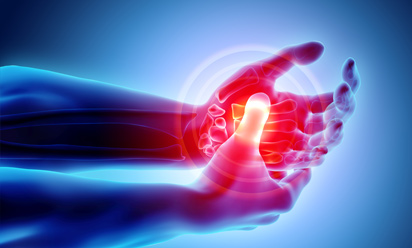
Pinched Nerve
In the event of injury or compression to the nerve roots, it could cause a pinched nerve - also known as radiculopathy. A pinched nerve happens when one or a group of nerves in the spine gets caught between two hard surfaces. There are many different reasons this may occur, from a traumatic injury to degenerative disease or poor lifestyle choices. When the nerve becomes pinched, it will stop working, resulting in pain and discomfort. In most cases, a pinched nerve occurs in the lower back (lumbar spine), however, it can also affect the neck or other parts of the spinal cord. There are soft tissue and bones throughout the spine, all of which can affect the nerves. Depending on the circumstances, the soft tissue can act alone, or it may work together with the bone to pinch a nerve.
Symptoms of a Pinched Nerve
Some of the most common symptoms of a pinched nerve in the low back include:
- A sharp, searing pain in the back that travels all the way down the leg to the foot
- Pain that increases with certain activities, such as sitting or even coughing
- Numbness in the leg or foot
- Weakness in the leg
Some of the most common symptoms of a pinched nerve in the neck include:
- A sharp, shooting pain in the arm
- Pain in the shoulder
- Numbness or a pins and needles sensation in the arm
- Weakness in one arm
- Pain that worsens when you move your neck or turn your head
In most cases, patients complain of their arm of leg “falling asleep” with a pinched nerve. This usually occurs with specific movements or when laying the wrong way. This sensation should go away on its own after moving positions, however, if it does not please contact Crescent Pain Relief right away.

Causes of a Pinched Nerve
The spine is a complex network with many moving parts. Because of this, there are many different factors that may lead to a pinched nerve. One of the most common causes that we see here at Crescent Pain Relief is a herniated disc. There are also a handful of other conditions that can cause a pinched nerve, including carpal tunnel syndrome, rheumatoid arthritis, bone spurs, and thyroid disease.
Regardless of which nerve is pinched, the patient often experiences numbness in the extremities because the brain cannot decipher between the beginning, middle, or end of the nerve.
Treating a Pinched Nerve
Treating a pinched nerve will depend on the individual, their symptoms, and what caused the problem. In some cases, the pinched nerve is a result of a muscle spasm or strain that is putting pressure on the nerve, in which case treatment may include physical therapy, alternating between heat and ice, and massage. While it may be tempting to want to rest and avoid any motion that may worsen your symptoms, one of the best things you can do is keep your body and joints moving. In many cases, doing so will help you find relief from pinched nerve pain on your own. Anti-inflammatory medications such as ibuprofen can also be quite effective. If your pain continues after several days, please contact Crescent Pain Relief to schedule an appointment. We offer a range of services aimed at helping you find relief and that will treat the underlying cause of the problem.
